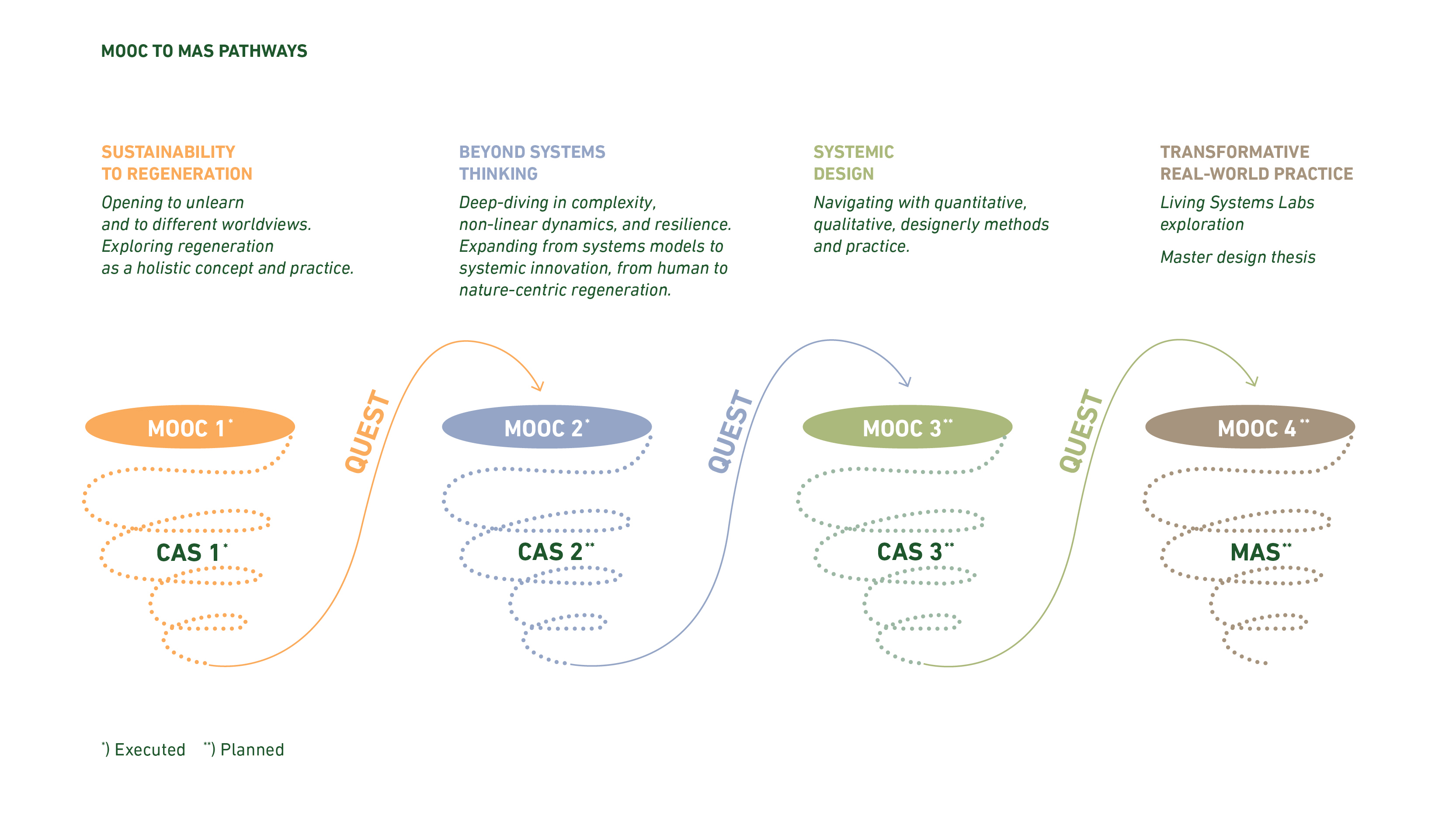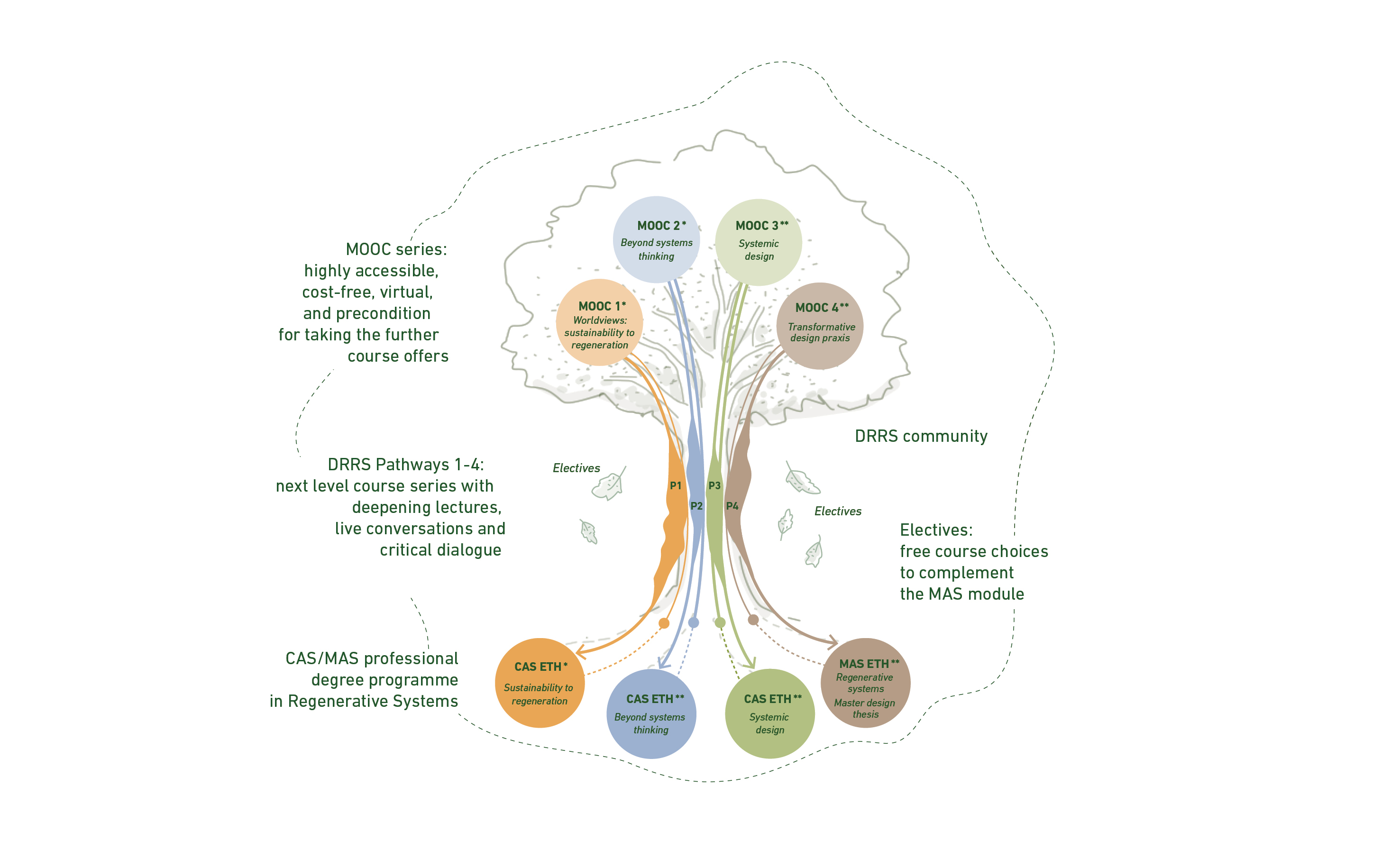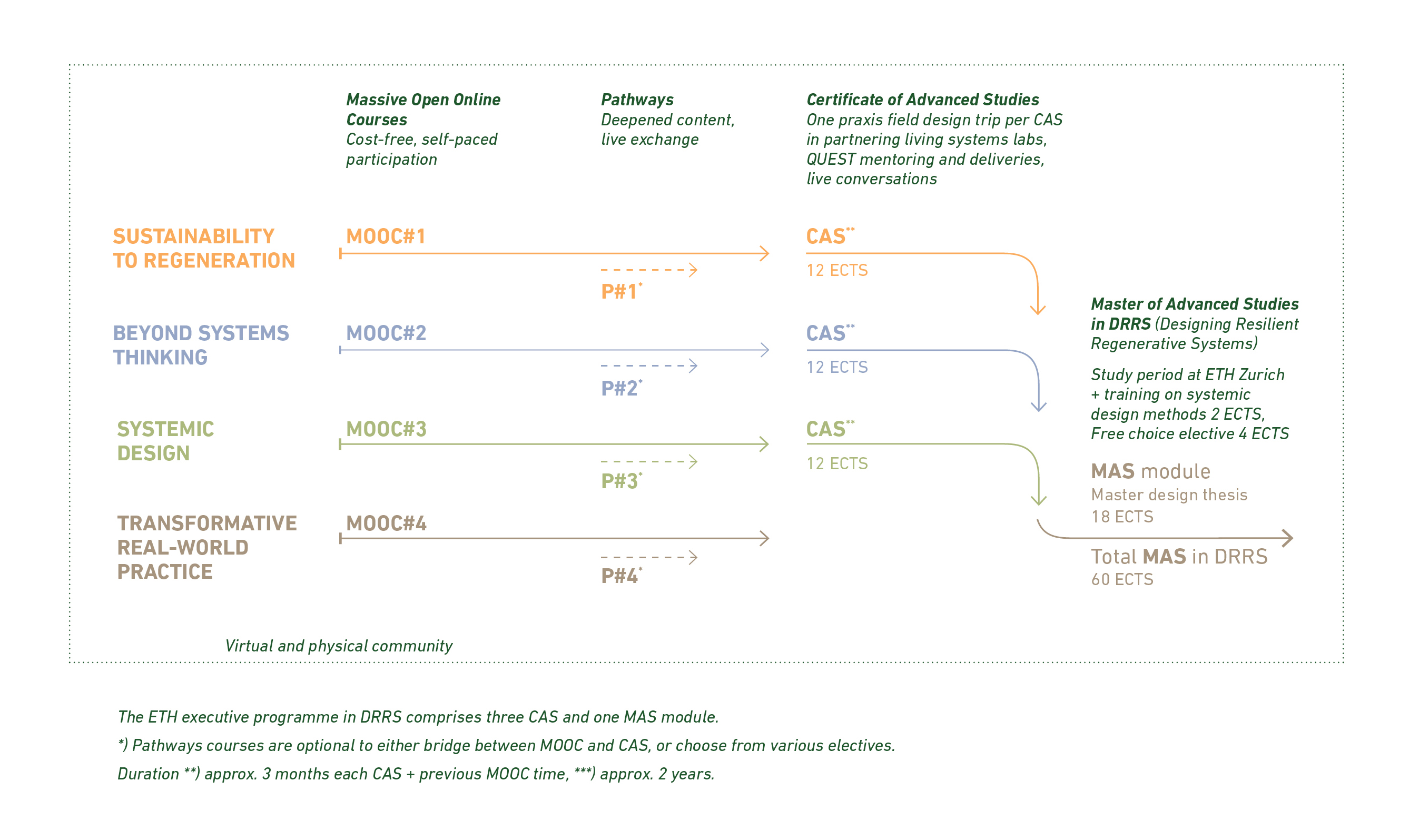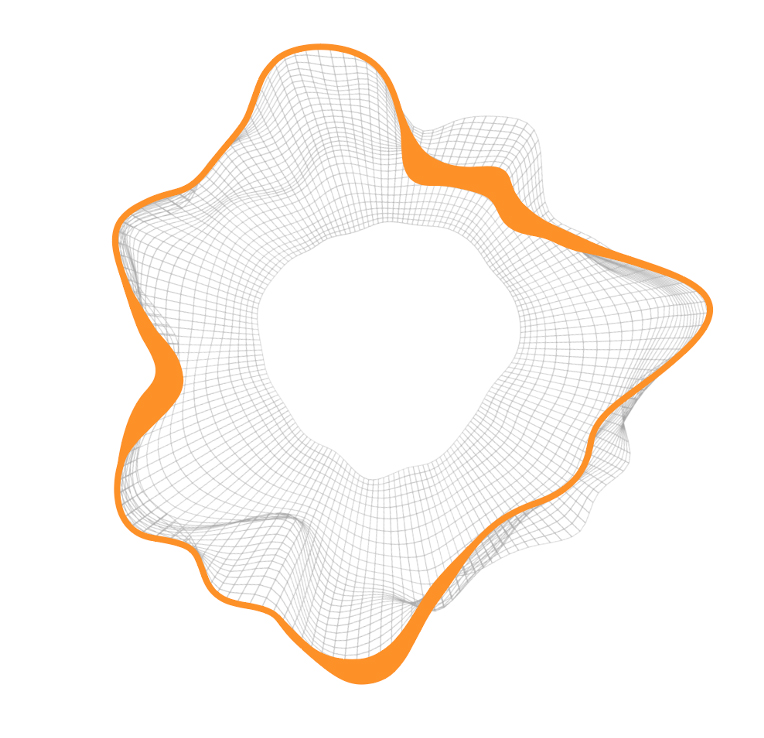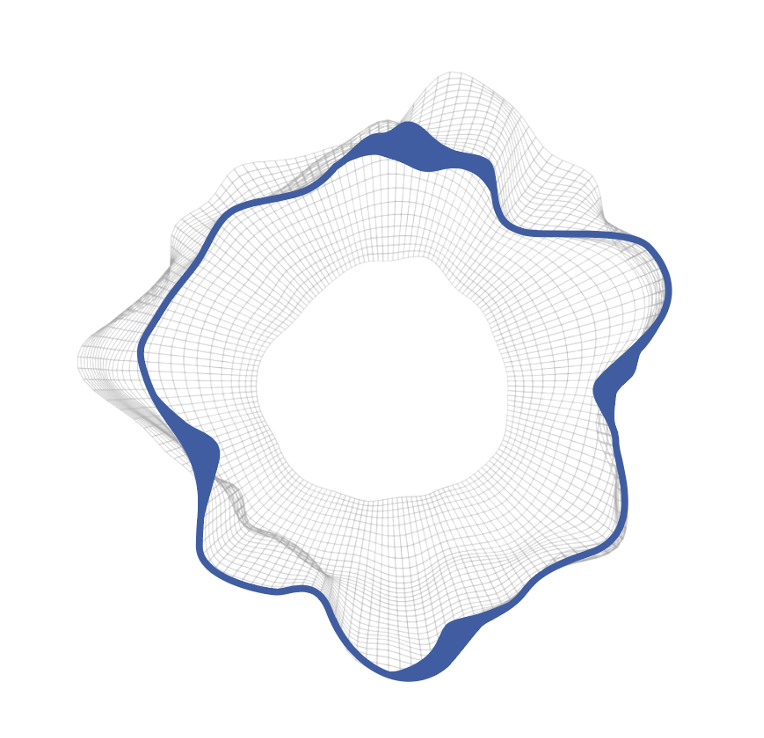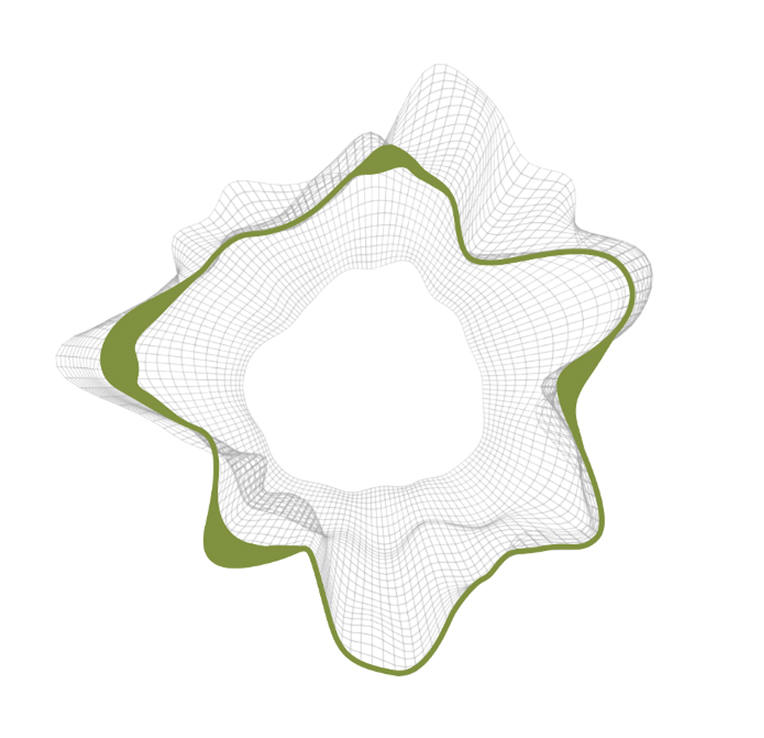Designing
Resilient Regenerative
Systems
The DRRS learning system
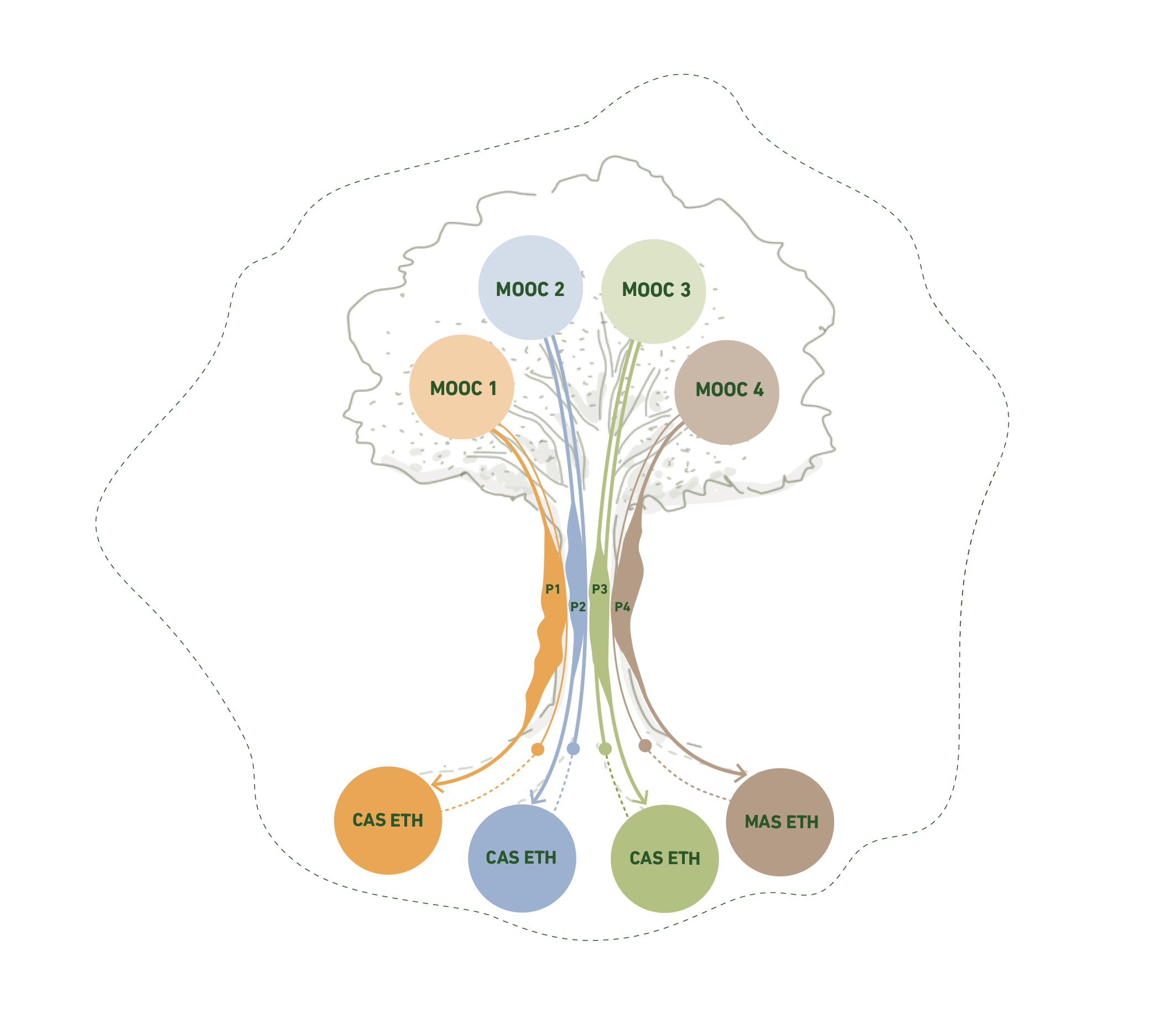
MOOCs, CAS, MAS, community – become part of the DRRS tree, an analogy for the DRRS learning system. The tree’s crown is the large-scale, highly accessible and cost-free entry to DRRS, the Massive Open Online Course (MOOC) series, available via the ETH Zurich channel on edX. The MOOCs will serve as standalone virtual course offers, and as entry to the tree trunk funnel into its root system, the DRRS professional program.
CAS alumni get the chance to feedback their learnings into the continuously evolving MOOC – like nutrients taken up through the root system and transported back up toward the tree’s crown.
This DRRS program builds on and expands the qualities of excellence in disciplinary science, such as ecosystem functions, biogeophysical cycles, cell regeneration, bioengineering, artificial intelligence, agent-based modeling, life cycle analysis, social network analysis, circular economy, nature finance, social-ecological resilience (…). To adequately deal with emergent, unplannable, adaptive systems, DRRS adds the meta-perspective, epistemological plurality, cross-scale linking, worldviews, organizing ideas as narratives and personal inner development to our learning portfolio and cultures.
Read more…
Master of Advanced Studies ETH in Regenerative Systems
The new full executive degree program is now established: the Master of Advanced Studies MAS ETH in Regenerative Systems.
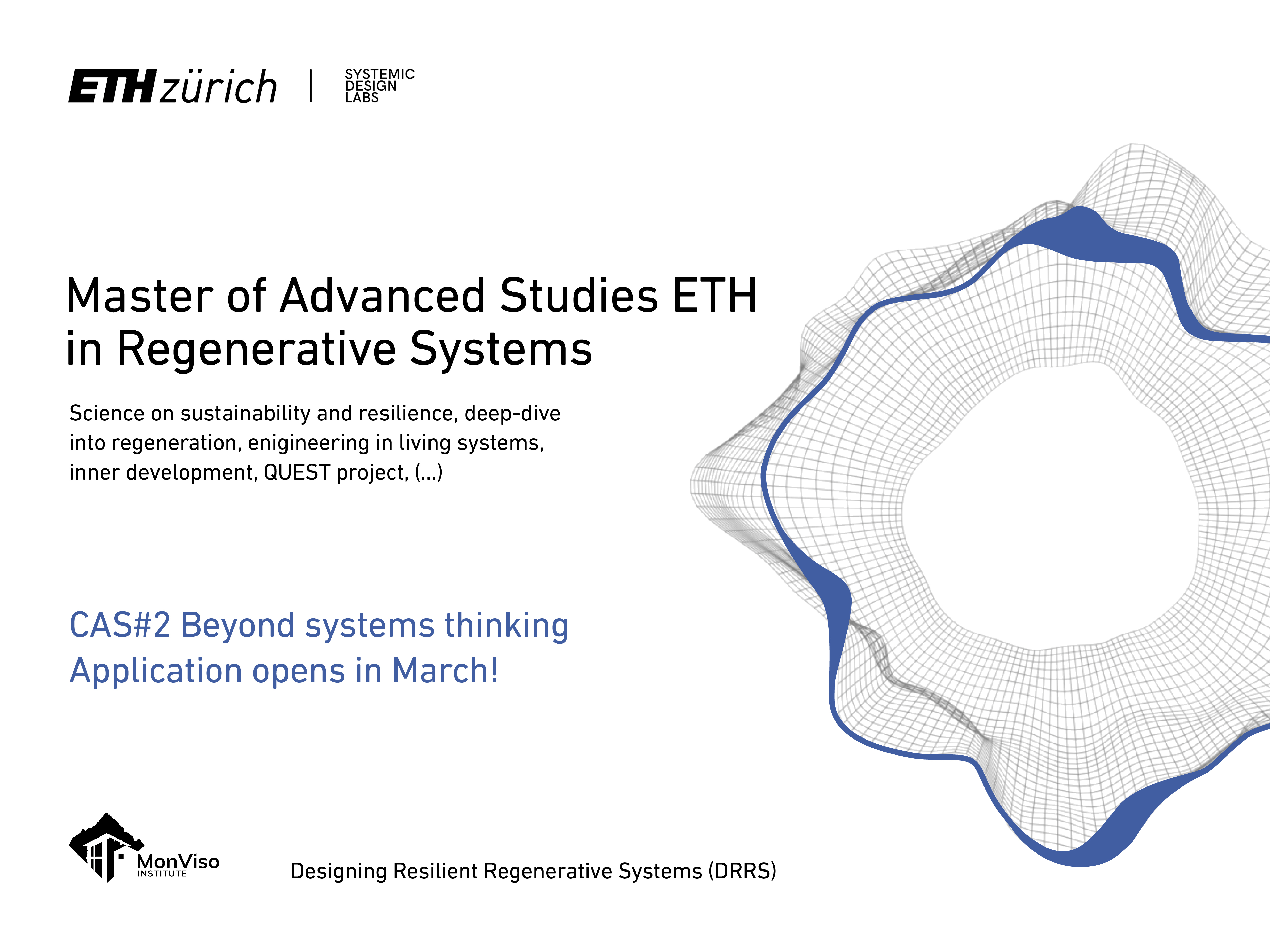
The new MAS in Regenerative Systems
With the greatest joy, we are announcing the official launch of the full Master of Advanced Studies ETH in Regenerative Systems (MAS ETH DRRS) and its upcoming next element, and stand-alone degree, Certificate of Advanced Studies CAS#2 Beyond Systems Thinking.
We are inviting you for a transformative journey of creating a positive impact in complex systems through three CAS and a MAS module comprising the total MAS ETH in DRRS. All modules build upon each other but can be taken in isolation and different order.
The entire MAS executive programme offers a learning-to-unlearn-to-relearn journey with your individual transformative design project, the QUEST, on how to navigate complexity for designing resilient regenerative systems. We deep-dive into regeneration on various systems types and nested governance scales; we embrace worldviews and learn to design as nature; we flourish mind through movement and practice circular design for resilience building in living systems labs. We provide reflected access to quantitative methods and to understanding their relational value with qualitative methods, designerly iteration, AI, embodied practice, and inner development.
Living systems, non-linearity, emergence, interbeing – the upcoming second CAS module “Beyond systems thinking” deep-dives into complexity and develops a critical understanding of systems. You will learn what systems thinking entails, and how it can become a helpful habit. The program’s field design trip to Norway will take you to exciting real-world practices in Nordic culture and the midnight sun. Through physical embodiment, you will connect with place, with community and your inner self.
Application to CAS#2 starting in May ’24
The 2nd element of the full MAS, CAS#2, and its learning journey application process is about to start, so save the dates: 01.03.-07.04.2024. The CAS is a hybrid program with a virtual course part from May until September ’24, and a physical field design trip to Norway June 8-16th ’24. MOOC#1 and #2 have to be taken or at least advanced as a precondition to this CAS. More info on CAS#2 here.
Further information
The MAS info pages can be accessed here. We offered a first virtual information event on March 4th 8pm CET (Zurich time) via Zoom; the recording can be accessed here. The visual presentation on Miro can be accessed here.

